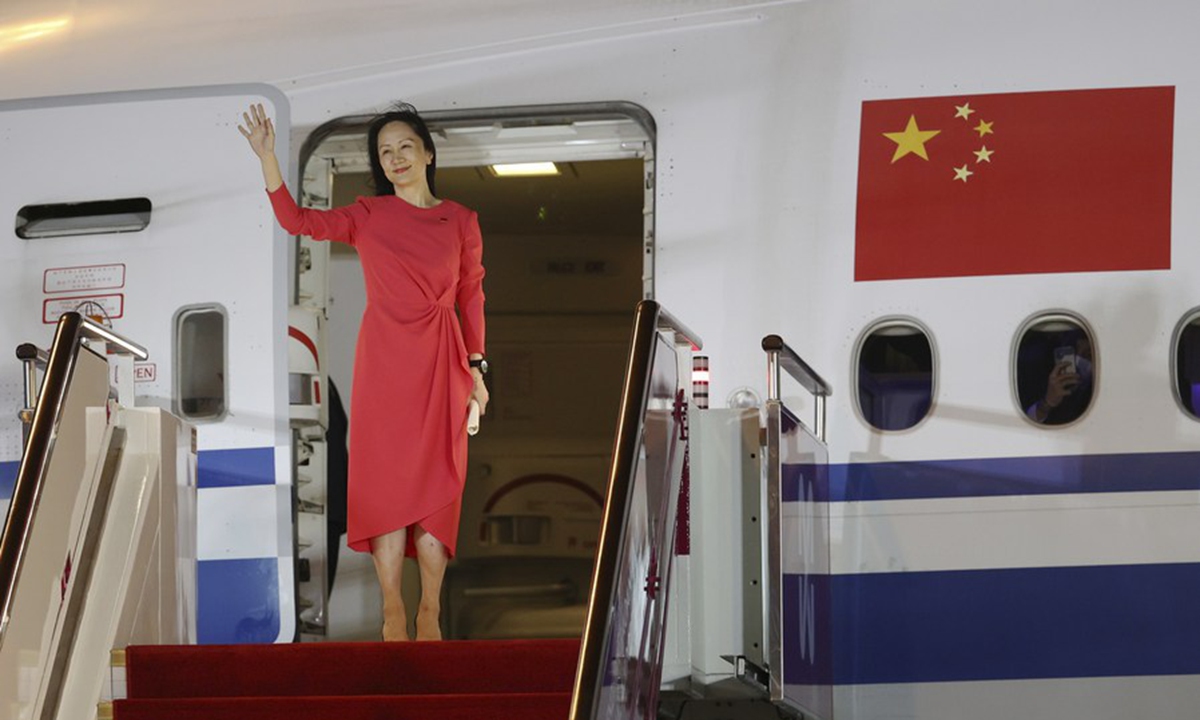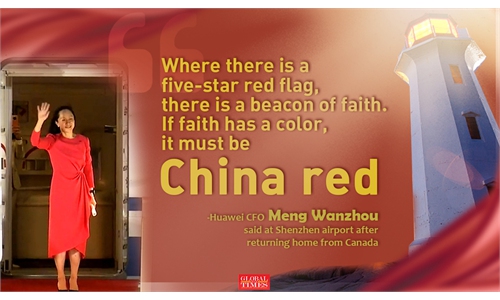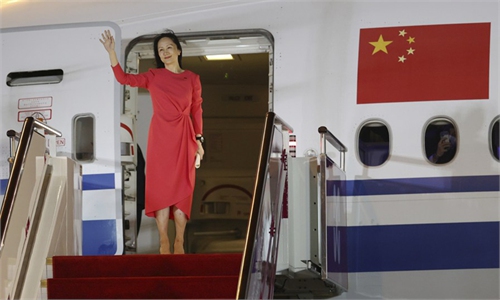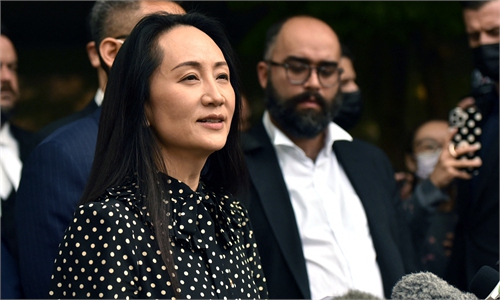US elites should not misread Meng’s release, incite hostility: Global Times editorial

Meng Wanzhou waves to a cheering crowd as she steps out of a charter plane at Shenzhen Bao'an International Airport in Shenzhen, south China's Guangdong Province, on Saturday. Photo: Xinhua
Huawei Chief Financial Officer Meng Wanzhou returned to China on Saturday. This is undoubtedly a positive signal for China-US and China-Canada relations. But the media and politicians from both the US and Canada have had some negative interpretations, which does not accord with the development of the case. Their political narrow-mindedness is despicable.Some voices accuse China's public opinion of hyping the release as a "victory" and emphasizing the role of China's national strength in this case. It must be pointed out that, throughout the Meng case, China has always been standing with justice, which has finally secured an unquestionable victory. It is also indisputable that Chinese state power contributed to this victory. Meanwhile, China has refrained from celebrating its victory. In comparison, after the China-US aircraft collision incident in 2001, 24 returning US crew members were extremely warmly welcomed as heroes by the then US president. The US was obviously the one to blame for that clash, and its high profile irritated many Chinese people.
The release of Meng was a symbolic incident signaling that China had withstood the trade war launched by the US while Huawei has successfully withstood the US' maximum pressure campaign. Washington's all-round containment efforts have failed to stop China from advancing. And now Meng is back. The world has clearly seen this. During the more than 1,000 days of Meng's detention, the US lost control of its domestic COVID-19 epidemic, suffered a debacle in Afghanistan and stabbed France - its close ally - in the back. The world has also clearly seen this. As a result, many countries' perception of the US will inevitably change.
Some US political and media elites should stop wrestling with the facts and the general trends. The US cannot crush China. Instead, the US needs to cooperate with China in many spheres including climate change, arms control and even mitigation of US inflation. Washington's reckless toughness on China can't be sustained. So the Biden administration's decision to free Meng was just a small step of adjustment.
A détente in the China-US relationship will bring no less benefit to the US than to China. China has already got used to the economic, political and military tensions with the US. The entire Chinese society is psychologically prepared for worse ties with Washington. China is highly united that there is almost nothing that it cannot withstand. The US is less capable of planning diverse interests as a whole with worries about gains and losses fomenting in Washington.
The US political system is particularly suitable for the manipulation of radical public opinion and kidnapping of national path. Meng's release has brought a potential opportunity for reflection and adjustment of the relations among China, the US and Canada. However, some extreme forces have attempted to incite hatred, counteract the positive side of Meng's release, and push hard-line anti-China public opinion to the forefront of public opinion in the US and Canada.
The US' practices before and after Meng's release reflect Washington's strategic zeal to contain China and its realism to cling to its course are influencing the US simultaneously. China will not take the initiative to confront the US, but we have the ability and the will to not compromise on the fundamental principles. This approach to the US is working and worthy of our continued adherence.
As China attaches great importance to "doing its own thing well" and supports its foreign strategy with a strong domestic policy, we have accumulated great diplomatic initiatives. The Biden administration's strategy of bringing allies together to contain China has gained some momentum on the surface, but its internal cohesion lacks real content and the outdated attraction of such alliances is eroding.
The Biden team may have felt that it is unable to comprehensively contain China, and intended to contract some fronts of conflict with China. However, the aggressive manner of the US public opinion on China will certainly confine them.
Facts prove that we generally cannot rely on the dynamics of US politics to have an underlying process of goodwill toward China and cannot expect a single development in Meng's release could activate that process. China must continue to grow stronger and more powerful. This is the real leverage and the driving force for the US to reason with China on some issues.



